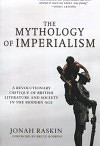Europe

The complicated and dramatic course of the Civil War in Greece had, for lack of parties interested in reconstructing the truth of its events, never been narrated prior to the appearance of this volume. It closed a gap in the history of our times, and did so with thoroughness and vivid journalistic immediacy. In addition to the known sources and unpublished documents, the author relied on testimony painstakingly collected from survivors of the tragedy who were scattered throughout the world. It remains the authoritative account. | more…
Faced with the difficulty of “placing” a stranger, the most common opening gambit is to ask, “What do you do?” Except perhaps in a few small hunter-gatherer tribes, a person’s occupation is one of the most important delineators of social identity. In many European cultures this is reflected in family names. People called Schmidt, Smith, Herrero, or Lefebvre, for instance, had ancestors who were iron workers. Wainwrights and Wagners are descended from wagon makers, and so on with the Mullers (Millers), Boulangers (Bakers), Guerreros (soldiers), and all the myriad Potters, Butchers, Carters, Coopers, Carpenters, Fishers, Shepherds, and Cooks whose names can be found in any North American phone book | more…
The British Parliament adopted a new antiterrorist law, the Prevention of Terrorism Act, on March 11, 2005. By doing so, Parliament made it possible for the government to carry out the long-standing project of expanding the emergency provisions to which foreigners are subjected within the context of the war on terrorism to cover the whole population, including citizens. This change is important because it calls into question the notion of habeas corpus. The law attacks the formal separation of powers by giving to the secretary of state for home affairs judicial prerogatives. Further, it reduces the rights of the defense practically to nothing. It also establishes the primacy of suspicion over fact, since measures restricting liberties, potentially leading to house arrest, could be imposed on individuals not for what they have done, but according to what the home secretary thinks they could have done or could do. Thus, this law deliberately turns its back on the rule of law and establishes a new form of political regime | more…
For seven years Germany has been governed by a center-left coalition. This government was elected in 1998 because a majority of the electorate was tired of conservatives promising that fiscal austerity, lower unemployment benefits and social security, and restrained wage growth would bring prosperity and full employment. However, the new government’s program has made that of its predecessor look like neoliberalism with a human face. The new government, led by the Social Democratic Party of Germany (SPD), has launched the most severe attacks on labor and social standards since the establishment of a welfare state after the Second World War. Since, for most of its history, the SPD has presented itself as the main force pushing for expansion of the welfare state, its anti-worker actions have deeply disappointed its followers and surprised its opponents | more…

“We, the readers and students of literature, have been hijacked. The literary critics, our teachers, those assassins of culture, have put us up against the wall and held us captive.” So begins Jonah Raskin’s The Mythology of Imperialism. When first published in 1971, this book was nothing short of a call to arms, an open revolt against the literary establishment. In his critique of five well–known British writers—Joseph Conrad, Rudyard Kipling, D. H. Lawrence, E. M. Forster, and Joyce Cary—Raskin not only developed the model for a revolutionary anti–imperialist criticism, but, through this book’s influence on Edward Said, helped usher in the field of postcolonial studies. | more…

2005 marks the fiftieth anniversary of the death of Albert Einstein and the centennial of the publication of five of his major scientific papers that transformed the study of physics. Einstein’s insights were so revolutionary that they challenged not only established doctrine in the natural sciences, but even altered the way ordinary people saw their world. By the 1920s he had achieved international popular renown on a scale that would not become usual until the rise of the contemporary celebrity saturated tabloids and cable news channels. His recondite scientific papers as well as interviews with the popular press were front page news and fodder for the newsreels. Usually absent, however, was any sober discussion of his participation in the political life of his times as an outspoken radical-especially in profiles and biographies after his death | more…
Europe’s trade union movement is on the defensive. It is also in a deep political and ideological crisis. At present, the trade unions are unable to fulfill their role as the defenders of the immediate economic and social interests of their members. They have lost ground in all sectors and industries. What was, in the post–Second World War period, the strongest and most influential trade union movement in the capitalist world is today openly confused, lacks a clear vision, and hesitates in its new social and political orientation. Ironically, the same theories, analyses, and policies which gave it its strength in the postwar period have now become a heavy burden. The ideological legacy of the “social pact” is now leading the trade union movement astray | more…
The letter of support, signed by the leaders of eight European countries last January, for the Bush administration’s inexorable push for war with Iraq was both singularly ideological and shortsighted. The list of values that the signatories claim to share with the United States is altogether unexceptionable: “democracy, individual freedom, human rights, and the rule of law.” But there is a crying omission: free-market capitalism. This omission is all the more striking since there is no fathoming the infamous terrorist attack of September 11, 2001 without bearing in mind that its main target was the World Trade Center, a prominent symbol and hub of globalizing capitalism | more…

Bukharin’s Philosophical Arabesques was written while he was imprisoned in the Lubyanka Prison in Moscow, facing a trial on charges of treason and the likelihood of execution. After the death of Lenin, Bukharin co-operated with Stalin for a time. Once Stalin’s supremacy was assured he began eliminating all potential rivals. For Bukharin, the process was to end with his confession before the Soviet court, facing the threat that his young family would be killed along with him if he did not.
While awaiting his death, Bukharin wrote prolifically. He considered Philosophical Arabesques as the most important of his prison writings. In its pages, he covers the
Ideologies are a constant of human societies, though they have become more explicit in modern society. Since the eighteenth century, they have been increasingly distinguished from religious doctrines and popular religion. Ideologies make a claim to knowledge about society. This knowledge is, of course, biased and distorted in accordance with the interests of certain groups in society, with historical conditions and circumstances. Ideologies claim to be complete accounts of reality, but they are not. They can be critiqued. They rise and pass away, and are perpetuated with certain interests in mind. The “truth” of ideology is political. Therefore, in Marx’s words, ideology is a “false consciousness” | more…
What do Helmut Kohl and Elián Gonzáles have in common? What could possibly unite the destinies of the huge former Chancellor of Germany, who for so many years dominated European politics and played the part of senior statesman on the global stage, and the little boy whose only political role so far has been as pawn in the hands of fading right-wing Cuban fanatics in Miami? | more…
Whether or not it is true, as Vaclav Havel famously claimed, that NATO’s attack on Yugoslavia represents the first war to be waged “in the name of principles and values,” the first “ethical war,” it might well be the case that it is the first act of armed aggression against a sovereign state whose popular legitimization relied almost wholly upon an alleged historical analogy. NATO spokespersons and apologists could not allude often enough to the Second World War,Hitler, and the Nazi regime’s persecution of the Jews. They did this in lieu of providing reasoned justification for NATO’s action, perhaps because under existing international law there was surely no such
justification to be found | more…



